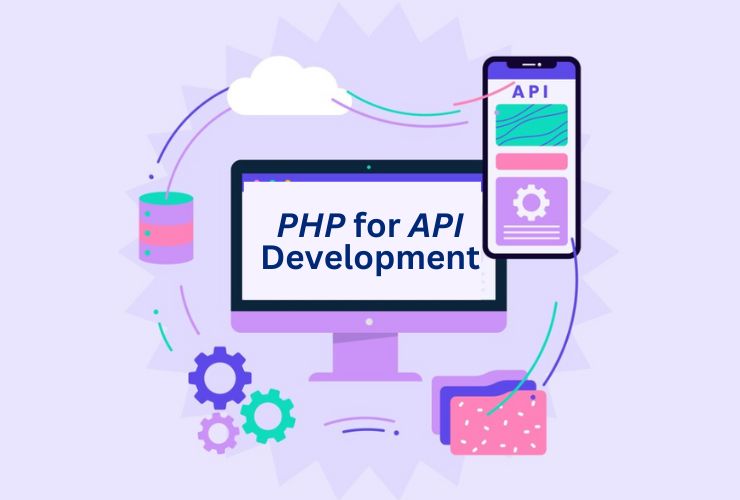With the help of APIs-Application Programming Interfaces – modern applications have been provided with web communication between other systems. Every web developer comes across one or more API connecting two applications to other services as payment gateways, social networks, and others.
PHP is one of the best tools for developing APIs known, above all, for being simple and flexible. Even if you are a junior developer or have been writing code for a few years, building efficient and secure APIs always requires the right approach. This guide explains best practices and strategies to building robust APIs using PHP.
Why Use PHP for API Development?
PHP is very exceptional at creating APIs because of the excellent support it offers for the library, strong frameworks such as Laravel and Symfony, and an enormous developer community. Using PHP allows you to develop dynamic scalable APIs that can easily integrate with other platforms.
Be it a startup or big enterprise, developers rely on PHP for all kinds of API requirements to be dealt with efficiently.
Must-Know Tips for Developing APIs in PHP
1. Select the Right Framework
APIs can be built using plain PHP, but frameworks like Laravel, Lumen, and Symfony make this a lot easier. They introduce pre-built tools for routing, middleware, and authentication, which can save some time and reduce the complexity of writing code.
2. Follow RESTful Principles
Building RESTful APIs will probably make them easier to use and understand. You should keep to common HTTP methods:
- GET: to retrieve data.
- POST: to establish new data.
- PUT: to change existing data.
- DELETE: to remove data.
Let your endpoints be logically managed in a way that their usability for developers is great.
3. Use JSON for Serialization
JSON is the de facto standard media for data exchange in APIs. It is lightweight and easy to parse. PHP has built in functions such as json_encode and json_decode that make working with JSON easy.
4. Secure Your API with Authentication
Security is one of the most important concerns while developing APIs, especially when the API handles sensitive data. Here are some common authentication methods:
- OAuth2: Good for token-based authentication.
- JWT: Good for stateless authentication.
- API Keys: Good and simple for lightweigh applications
- You pick what best suits your application.
5. Validate and Sanitize Inputs
Never trust user inputs! Use PHP’s built in filters such as filter_var() or validation tools inside your framework to avoid SQL injection and XSS attacks.
6. Enabling CORS for Cross-Domain Requests
To enable your API to be used by apps on other domains, enable Cross-Origin Resource Sharing (CORS). Implement your CORS policies using PHP headers or middleware, ensuring that there is a balance between accessibility and security.
7. Error Gracefully
No one appreciates obscure error messages. Ensure that your error responses contain meaningful text along with an appropriate HTTP status code:
- 200: OK
- 400: Bad request.
- 401: Unauthorized.
- 500: Internal Server Error.
Clean errors make troubleshooting easy and improve the overall user experience.
8. Optimise for Performance
Efficient APIs provide better user experiences. Here’s how to optimize your API:
- Caching: Use tools like Redis or Memcached to store frequently accessed data.
- Optimization Database: Use indexing and ORM to help optimize database queries.
- Compress Response: Use gzip compression on responses to reduce payload sizes and improve speed.
9. Test, Test, and Test Again
This guarantees the reliability of your API.
Test Endpoints Manually Using Postman or Insomnia Tools.
Auto test it. Write test scripts using PHPUnit to ensure that the endpoints are always working as required.
10. Document Your API
Proper documentation is gold for developers consuming your API. Tools such as Swagger or Postman will aid in creating clear, interactive documentation that outlines endpoints, parameters, and expected responses.
Conclusion
Building APIs in PHP is a very rewarding job if the best practices outlined above are followed. Such APIs would be reliable and scalable while easy to use.
Want something more? Just tell us, and our team of PHP development professionals will give you the most secure high-performance API for your requirements.













 Database Development
Database Development












































